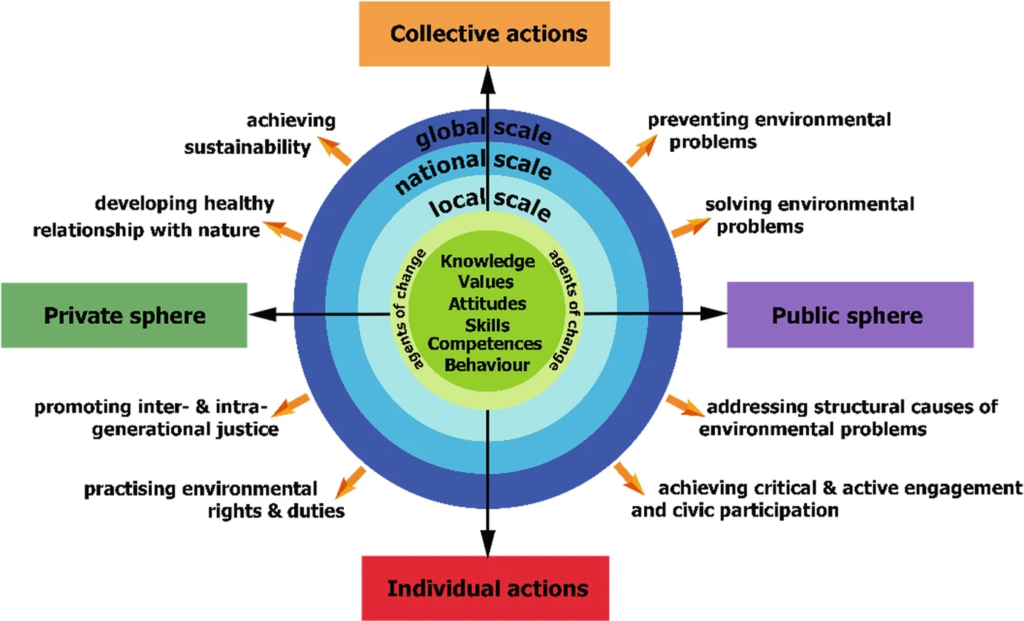Active Citizens: social action for climate change

YOUNG PEOPLE ACROSS THE WORLD PERCEIVE CLIMATE CHANGE AS THE BIGGEST GLOBAL CHALLENGE FACING OUR WORLD TODAY
Today’s environmental challenges are characterised by complexity. We live in a digitalised environment, our biodiversity is impacted, we over-exploit our natural resources and these factors are considerably impacting the environment.
Environmental Citizenship requires new ways of thinking and acting. Being an active environmental citizen includes recognising the value of liveable environments for humans and nature, promoting conservation and restoration of resources, and supporting nature protection and biodiversity.
Environmental attitudes and behaviour characterises and influence our production and consumption choices and therefore affect largely our environmental impact.
More than 154 experts from 39 countries participating in the European Network for Environmental Citizenship (ENEC) conseptualise what environmental citizenship means today.
“Environmental Citizenship” is defined as the responsible pro-environmental behaviour of citizens who act and participate in society as agents of change in the private and public sphere, on a local, national, and global scale, through individual and collective actions, in the direction of solving contemporary environmental problems, preventing the creation of new environmental problems, achieving sustainability as well as developing a healthy relationship with nature.
Environmental Citizenship includes the practise of environmental rights and duties, as well as the identification of the underlying structural causes of environmental degradation and environmental problems and the development of the willingness and the competences for critical and active engagement and civic participation to address those structural causes and to act individually and collectively within democratic means, taking into account inter- and intra-generational justice (ENEC 2018a).

To try to define this key concept, the European Network for Environment Citizenship (ENEC) was launched in 2017 with the aim to improve understanding and assessment of environmental citizenship in European societies. Environmental Citizenship is a key factor in EU’s growth strategy and plays a crucial role in achieving environmental sustainability, green transition, circular economy, and a carbon neutral future. ENEC COST Action gathers 154 academic researchers and scientists from more than 88 universities and research institutions from 39 countries in a multi-national and multi-disciplinary approach.
ENEC has developed new concepts, methods, metric tools, and pedagogical approaches. The network also tries to improve the protection of our planet with Teachers Professional Development Guidelines and policy recommendations.
“Environmental Citizenship, and its novel conceptualisation, is a promising environmental innovation which can help us reach our goals for achieving environmental sustainability, green transition, circular economy, and a carbon neutral future.“
Dr Andreas HADJICHAMBIS, Action Chair.
The aim of this European network is to deliver reflection papers and strategic recommendations for the Education for Environmental Citizenship (EEC) that will empower a new generation of environmental citizens, capable of promoting the necessary environmental and social change for the benefit of our environment.
In this attempt, ENEC decided to go beyond the necessary scientific publications and developed a book for children and three animated videos, explaining in lay formats the main concepts and approaches.
References:
Article retrieved from: Stokes, L. (2022, June 3). What does it mean to be an environmental citizen? – COST. COST. https://www.cost.eu/environmental-citizenship/